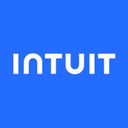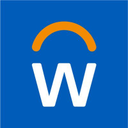QuickBooks vs Workday Adaptive Planning (2025 Comparison)

QuickBooks offers a user-friendly interface and comprehensive accounting features, making it an ideal choice for small businesses seeking efficient financial management solutions.
- User-friendly interface for easy navigation.
- Comprehensive accounting features for small businesses.
- Wide range of integrations with popular tools.
- Limited scalability for larger enterprises.
- Advanced features may require additional costs.
Free plan?
YesStarting price
$17.50 per month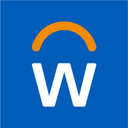
Workday Adaptive Planning provides advanced financial planning tools and scalability, making it perfect for large enterprises seeking robust forecasting and budgeting capabilities.
- Advanced financial planning and analysis tools.
- Highly scalable for large enterprises.
- Seamless integration with Workday ecosystem.
- Steep learning curve for new users.
- Higher price point for advanced features.
Free plan?
YesStarting price
What is QuickBooks?
QuickBooks is a comprehensive accounting software designed to help small to medium-sized businesses manage their finances efficiently. It offers features like invoicing, expense tracking, payroll management, and financial reporting. With its user-friendly interface, QuickBooks simplifies complex accounting tasks, making it easier for business owners to keep track of their financial health. Whether you're a freelancer or a growing business, QuickBooks provides the tools you need to streamline your accounting processes and make informed financial decisions.
What is Workday Adaptive Planning?
Workday Adaptive Planning is a powerful financial planning and analysis software that helps organizations streamline their budgeting, forecasting, and reporting processes. It offers a flexible and intuitive platform that allows users to create dynamic financial models, collaborate in real-time, and gain valuable insights into their business performance. With its robust analytics capabilities, Workday Adaptive Planning empowers finance teams to make data-driven decisions, improve accuracy, and drive strategic growth. Whether you're a small business or a large enterprise, this software provides the tools you need to optimize your financial planning and achieve your business goals.
Pros and Cons of QuickBooks vs Workday Adaptive Planning
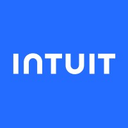
Pros & Cons of QuickBooks
- QuickBooks offers a user-friendly interface that simplifies navigation and makes it easy for users to perform accounting tasks efficiently. This is particularly beneficial for small business owners who may not have extensive accounting knowledge.
- QuickBooks provides a wide range of accounting features, including invoicing, expense tracking, and payroll management, making it a one-stop solution for small businesses looking to manage their finances effectively.
- QuickBooks offers a wide range of integrations with popular business tools, enhancing its functionality and allowing users to connect with other applications they use daily, streamlining their workflow.
- QuickBooks may face limitations in scalability as businesses grow, making it less suitable for larger enterprises with complex financial needs. This can be a drawback for businesses anticipating significant growth.
- While QuickBooks offers a range of features, some advanced functionalities may require additional costs, which can be a consideration for businesses operating on a tight budget.

Pros & Cons of Workday Adaptive Planning
- Workday Adaptive Planning offers advanced financial planning and analysis tools, providing users with robust forecasting, budgeting, and reporting capabilities. This makes it an ideal choice for organizations seeking comprehensive financial insights.
- Workday Adaptive Planning is designed to scale with large enterprises, offering flexibility and adaptability to meet the evolving needs of growing organizations. This scalability is a significant advantage for businesses anticipating expansion.
- Workday Adaptive Planning provides seamless integration with the Workday ecosystem, allowing organizations to connect their financial planning processes with other Workday products, enhancing overall efficiency and collaboration.
- Workday Adaptive Planning may have a steep learning curve for new users, particularly those unfamiliar with advanced financial planning tools. This can require additional training and onboarding time.
- Workday Adaptive Planning's advanced features come at a higher price point, which may be a consideration for smaller businesses or those with limited budgets seeking cost-effective solutions.
QuickBooks vs Workday Adaptive Planning: At A Glance
Value to Price
Value to Price is a critical dimension that evaluates the cost-effectiveness of a software solution. QuickBooks offers a competitive pricing structure, making it an attractive option for small businesses seeking affordable accounting solutions. On the other hand, Workday Adaptive Planning provides advanced features that justify its higher price point, making it ideal for larger enterprises with complex financial planning needs. If you're a small business owner looking for cost-effective accounting software, QuickBooks is a great choice.
Ease of Use
Ease of Use measures how user-friendly a software is. QuickBooks is known for its intuitive interface, making it easy for users to navigate and perform accounting tasks efficiently. Workday Adaptive Planning, while powerful, may require a learning curve for new users due to its advanced features. If you prioritize ease of use and want a straightforward accounting solution, QuickBooks is the better option.
Functionality
Functionality assesses the range of features and capabilities a software offers. QuickBooks provides essential accounting features like invoicing, expense tracking, and payroll management. Workday Adaptive Planning, however, excels in financial planning and analysis, offering robust forecasting and reporting tools. If you need advanced financial planning capabilities, Workday Adaptive Planning is the superior choice.
Scalability
Scalability evaluates how well a software can grow with your business. QuickBooks is suitable for small to medium-sized businesses, but may face limitations as your business expands. Workday Adaptive Planning, on the other hand, is designed to scale with large enterprises, offering flexibility and adaptability. If you anticipate significant growth, Workday Adaptive Planning is the better option.
Integrations
Integrations measure how well a software can connect with other tools and systems. QuickBooks offers a wide range of integrations with popular business applications, enhancing its functionality. Workday Adaptive Planning also provides seamless integrations, particularly with other Workday products, making it a strong choice for organizations using the Workday ecosystem. If you rely on multiple business tools, both options offer excellent integration capabilities.
Customer Support
Customer Support evaluates the quality and availability of assistance provided by the software provider. QuickBooks offers comprehensive support options, including phone, chat, and community forums. Workday Adaptive Planning also provides robust support, with dedicated account managers for enterprise clients. If you value personalized support, Workday Adaptive Planning may be the better choice.
Security
Security assesses the measures in place to protect your data. QuickBooks implements strong security protocols, including encryption and multi-factor authentication, to safeguard your financial information. Workday Adaptive Planning also prioritizes security, with advanced data protection features and compliance with industry standards. If data security is a top priority, both tools offer reliable protection.
Overall Rating
Overall Rating is a comprehensive assessment of a software's performance across all dimensions. QuickBooks scores well for its affordability and ease of use, making it a popular choice for small businesses. Workday Adaptive Planning, with its advanced features and scalability, receives a higher overall rating, making it ideal for larger enterprises. If you're looking for a robust financial planning solution, Workday Adaptive Planning is the top choice.
QuickBooks vs Workday Adaptive Planning: A Detailed Breakdown of Key Features
Invoicing
Invoicing is a crucial feature for businesses to manage their billing processes. QuickBooks excels in this area, offering customizable invoice templates and automated reminders, making it easy for you to manage your accounts receivable. Workday Adaptive Planning, while providing invoicing capabilities, focuses more on financial planning and analysis, which may not be as comprehensive for invoicing needs. If invoicing is a priority for your business, QuickBooks is the better choice.
Expense Tracking
Expense Tracking is essential for businesses to monitor their spending and manage budgets effectively. QuickBooks offers robust expense tracking features, allowing you to categorize expenses, attach receipts, and generate detailed reports. Workday Adaptive Planning also provides expense tracking, but its primary focus is on financial planning and analysis. If you need comprehensive expense tracking capabilities, QuickBooks is the superior option.
Payroll Management
Payroll Management is a critical feature for businesses to ensure accurate and timely employee payments. QuickBooks offers a comprehensive payroll solution, including tax calculations and direct deposit options, making it easy for you to manage payroll processes. Workday Adaptive Planning, while offering payroll capabilities, is more focused on financial planning and analysis. If payroll management is a priority, QuickBooks is the better choice.
Financial Reporting
Financial Reporting is vital for businesses to gain insights into their financial performance. QuickBooks provides a range of reporting options, including profit and loss statements and balance sheets, helping you make informed decisions. Workday Adaptive Planning excels in financial reporting, offering advanced analytics and customizable dashboards. If you need in-depth financial reporting capabilities, Workday Adaptive Planning is the superior choice.
Budgeting
Budgeting is essential for businesses to plan and allocate resources effectively. QuickBooks offers basic budgeting tools, allowing you to set financial goals and track progress. Workday Adaptive Planning, however, provides advanced budgeting capabilities, including scenario planning and real-time collaboration. If you require sophisticated budgeting tools, Workday Adaptive Planning is the better option.
Forecasting
Forecasting is crucial for businesses to anticipate future financial performance and make strategic decisions. QuickBooks offers basic forecasting tools, helping you project future revenue and expenses. Workday Adaptive Planning excels in forecasting, providing advanced modeling and scenario analysis capabilities. If you need comprehensive forecasting tools, Workday Adaptive Planning is the superior choice.
Pricing Comparison of QuickBooks and Workday Adaptive Planning
To assist you in making an informed choice, we’ve outlined the pricing plans and essential features of QuickBooks and Workday Adaptive Planning. This comparison will highlight the best option for managing your financial needs.
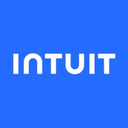
QuickBooks Pricing Plans
- Automate bookkeeping tasks to save time and reduce errors.
- Capture and organize receipts for easy tracking and reporting.
- Track mileage to maximize tax deductions and reimbursements.
- Generate general reports to gain insights into business performance.
- Handle multiple currencies for international transactions.
- Connect up to 3 sales channels for seamless integration.
- Generate enhanced reports for deeper business insights.
- Includes 3 users for collaborative work environment.
- Analyze project profitability to optimize resource allocation.
- Connect all sales channels for comprehensive sales tracking.
- Includes 5 users for expanded team collaboration.
- Generate comprehensive reports for detailed financial analysis.
- Sync data with Excel for advanced data manipulation.
- Manage up to 25 users for large team collaboration.
- Access 24/7 support and training for continuous assistance.
- Utilize revenue recognition for accurate financial reporting.
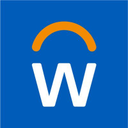
Workday Adaptive Planning Pricing Plans
- Guided walkthrough of core planning capabilities for ease of use.
- Step-by-step guide for planning, reporting, and dashboards.
- Test-drive the software with full features for 30 days.
- No commitment required, explore at your own pace.
- Unlimited versions to accommodate various planning needs.
- Unlimited what-if scenarios for comprehensive analysis.
- Boost agility and grow your business with robust tools.
- Request a quote for tailored pricing based on needs.
- Connects with any ERP or GL for seamless integration.
- Unlimited what-if scenarios for comprehensive analysis.
- Request a quote for tailored pricing based on needs.
- All-in-one package for planning and consolidation.
Our Rating Methodology
We thoroughly test each financial planning software, evaluating key features like ease of use, functionality, and scalability. We also analyze user reviews to ensure our recommendations fit your needs. Each of the seven evaluation factors is weighted by importance to provide an accurate final rating, helping you avoid poor-quality tools and make informed decisions.
QuickBooks or Workday Adaptive Planning: Which One Matches Your Business Needs?
Choose QuickBooks If You Need ...
- User-friendly accounting solution
If you are a small business owner looking for an easy-to-use accounting solution, QuickBooks is the ideal choice. Its user-friendly interface and comprehensive features make it perfect for managing your finances efficiently.
- Cost-effective financial management
If you are operating on a tight budget and need a cost-effective financial management solution, QuickBooks offers affordable pricing plans with essential accounting features, making it a great option for small businesses.
Choose Workday Adaptive Planning If You Need ...
- Advanced financial planning tools
If you require advanced financial planning and analysis tools, Workday Adaptive Planning is the superior choice. Its robust forecasting and budgeting capabilities make it ideal for large enterprises seeking comprehensive financial insights.
- Scalable solution for growth
If you anticipate significant growth and need a scalable financial planning solution, Workday Adaptive Planning offers the flexibility and adaptability to meet the evolving needs of your organization, making it the better option.
Frequently Asked Questions
 Which tool is better for small businesses?
Which tool is better for small businesses?
 Which tool offers more advanced financial planning features?
Which tool offers more advanced financial planning features?
 Which tool is more scalable for growing businesses?
Which tool is more scalable for growing businesses?
 Which tool provides better customer support?
Which tool provides better customer support?
 Which tool offers better integration capabilities?
Which tool offers better integration capabilities?
 Which tool is more secure for data protection?
Which tool is more secure for data protection?

Martin Lunendonk
Martin Lunendonk is a senior tech writer specializing in website builders, web hosting, and ecommerce platforms. With a background in finance, accounting, and philosophy, he has founded multiple tech startups and worked in medium to large tech companies and investment banking, bringing deep expertise and reliable insights to his software reviews.

